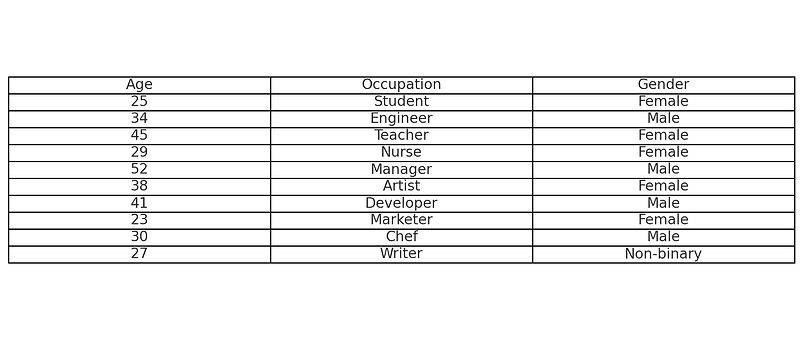
Response to Qualitative and Quantitative Research
Research
The purpose of this research is to understand the diverse needs, habits, and pain points of individuals from various backgrounds regarding meditation and stress relief. By analyzing these insights, I aim to develop Aura effectively and address the common issues faced with existing apps, such as lengthy paywalls, high costs, and complex interfaces, ensuring a more user-friendly and accessible meditation experience.

Participant Data





Deep Dive: The User Insights
My research involved understanding diverse user needs and habits, revealing critical pain points with current meditation apps. These insights are the backbone of Aura's user-focused design.

Piecing It Together
My pie charts vividly illustrate user habits and preferences, highlighting the importance of flexible, accessible meditation solutions. These visual insights guide Aura’s tailored features, ensuring we meet user needs effectively.

User Persona
Emily Carter
Background:
Emily is a university student pursuing a degree in environmental science. She is highly engaged in her studies and participates actively in various campus activities. Balancing academics, social life, and part-time work can be stressful, prompting her to seek effective ways to manage her stress and anxiety.
Goals and Needs:
-
Immediate Access: Emily needs quick and easy access to meditation sessions without being hindered by paywalls.
-
Short Sessions: Given her busy schedule, Emily prefers shorter meditation sessions to fit into her day.
-
Affordable Solutions: As a student, she is budget-conscious and seeks affordable or accessible meditation options.
-
User-Friendly Interface: Emily values a simple and intuitive interface that doesn’t require much effort to navigate.

Age: 25
Occupation: Student
Gender: Female
Pain Points with Other Apps:
-
Lengthy paywalls
-
Lengthy sessions
-
High subscription costs
-
Complex interface
Meditation Habits:
-
Frequency of Seeking Meditation/Stress Relief: Often
-
Frequency of Meditation: Daily
-
Use of Other Meditation Apps: Yes
-
Times Meditated per Week: 7
Preferred Features for Aura:
-
Ad-Free Experience: To ensure uninterrupted meditation sessions.
-
Personalized Content: Customizable meditation options tailored to her anxiety relief needs.
-
Flexible Session Lengths: Shorter sessions that can be easily integrated into her daily routine.
-
Affordable Access: Providing essential features without high costs or extensive paywalls.
The Power of User Personas
User personas bring research to life, transforming data into relatable characters. They help us empathize with our users, guiding Aura’s design to ensure it truly meets their needs.

Empathy Map
Says
-
"I need quick meditation sessions that fit into my busy schedule."
-
"Why are there so many paywalls? I just want to meditate without interruptions."
-
"This app's interface is so confusing, I can't find what I need."
Thinks
-
"I need quick meditation sessions that fit into my busy schedule."
-
"Why are there so many paywalls? I just want to meditate without interruptions."
-
"This app's interface is so confusing, I can't find what I need."
Does
-
"I need quick meditation sessions that fit into my busy schedule."
-
"Why are there so many paywalls? I just want to meditate without interruptions."
-
"This app's interface is so confusing, I can't find what I need."



Feels
-
"I need quick meditation sessions that fit into my busy schedule."
-
"Why are there so many paywalls? I just want to meditate without interruptions."
-
"This app's interface is so confusing, I can't find what I need."
Walking in Their Shoes
Empathy maps delve into users' thoughts and feelings, offering a deeper understanding of their experiences. This tool helped me design Aura with genuine user empathy, ensuring we address real pain points and desires.

Research Summary
The research involved 10 participants from diverse backgrounds, varying in age, occupation, and gender. The key findings are as follows:
-
Frequency of Seeking Meditation/Stress Relief: Most participants (60%) often seek meditation or stress relief, indicating a high demand for accessible and effective meditation solutions.
-
Meditation Habits: 60% of participants meditate daily, while 30% do so weekly. This suggests the need for flexible meditation options catering to different routines.
-
Use of Other Meditation Apps: 70% of participants use other meditation apps, highlighting the competitive landscape and the need for Aura to stand out.
-
Main Need for Meditation: The primary reasons for meditation are anxiety (30%), sleep (20%), and stress relief (20%), showing that Aura should focus on addressing these key areas.
-
Pain Points with Other Apps: Common issues include lengthy paywalls, high subscription costs, intrusive ads, lengthy sessions, and complex interfaces. Aura aims to solve these problems by offering affordable access, shorter sessions, a user-friendly interface, ample free content, and an ad-free experience.
Summary: The participants expressed a need for affordable, user-friendly meditation solutions with quick, personalized sessions. The high costs, complex interfaces, and intrusive ads of current meditation apps often frustrate them. By addressing these pain points, Aura can provide a more satisfying and accessible meditation experience.
The Big Picture
My research reveals essential user habits, needs, and pain points, laying the foundation for Aura. This summary highlights the crucial insights that drive our user-centric design, ensuring Aura is tailored for maximum impact.
